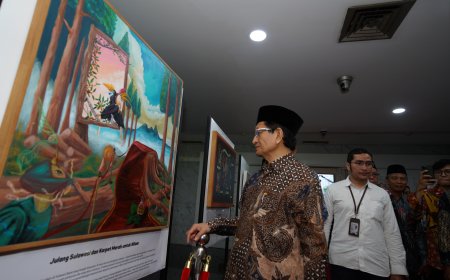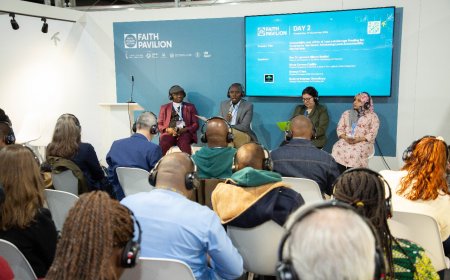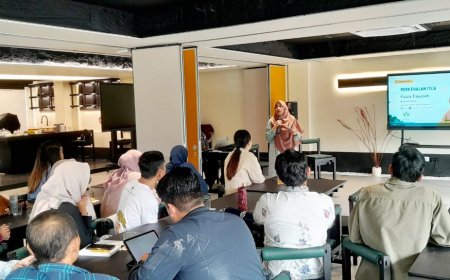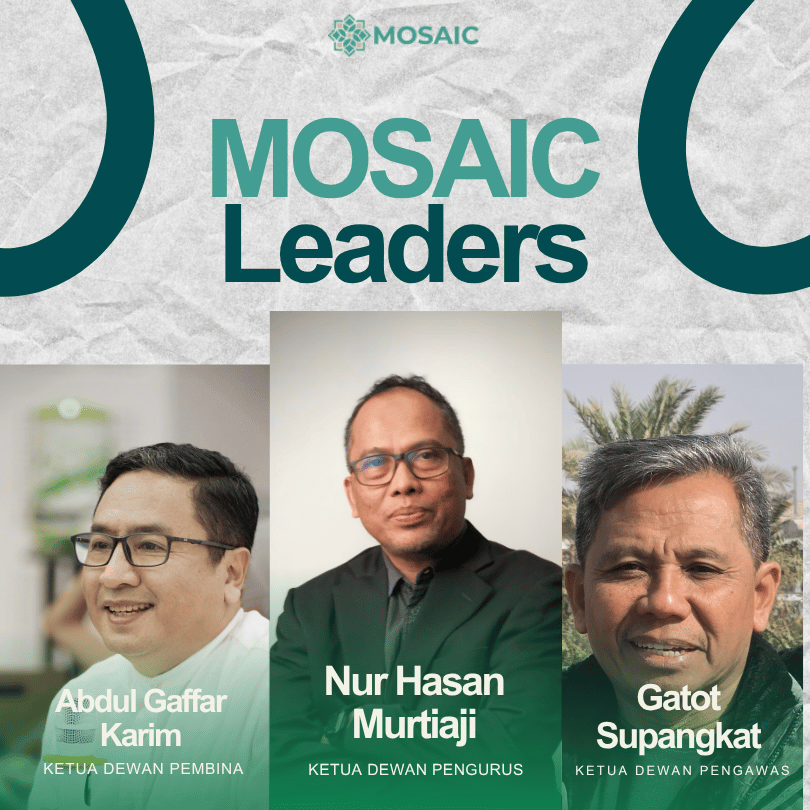Prophet ablutions: Not more than a half bottle of water
The average worshipper make ablution with water as much as 5.74 litres with a 45' tap opening
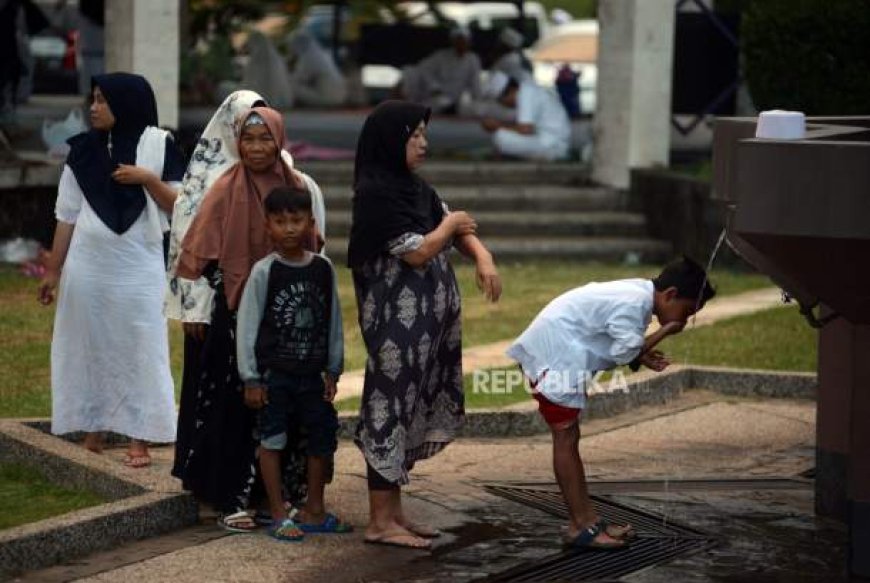
MOSAIC-INDONESIA.COM, JAKARTA -- Water plays an important role for the life of every Muslim. Through water, Muslims can perform ritual cleansing such as ablutions, istinja, to ritual baths so that the worship can go perfectly. Even so, the Prophet Muhammad (peace be upon him), has repeatedly coutioned on wasting water.
The wasteful utilization of ablution water has been researched by Invention Tradition (Inventra) Salman ITB. Using the Mujtahid Dakwah 201 Exercise, they calculated the use of ablution water in three mosques in 2021, namely, Al-Mujahidin Mosque Yogyakarta, Bahrul Ulum Mosque Surabaya, and Nurul 'Ashri Mosque Yogyakarta.
As a result, the average worshipper who opened the 90' tap spent 11.83 litres of ablution water per person with a duration of 29.92 seconds. Meanwhile, worshippers with 45' tap openings spend 5.74 litres of ablution water per person with an ablution duration of 53.19 seconds. If the study describes the ablution water consumption of each Indonesian Muslim of 240 million people, then in one prayer time, 1.44 billion liters of water are spent. If in a day you perform the prayer five times, the amount will jump to 7.2 billion liters of water.
As it turns out, similar things are happening in other parts of the world. As an illustration, Abu Rozaiza in Springer's Journal once measured the amount of water used by each worshipper who worshiped at the Masjid al-Haram, Makkah and the Nabawi Mosque, Madinah.He discovered the fact that every person who practices ablution in the holy mosque spends five liters of water. During the Hajj season, the amount of water use in Arafah and Muzdalifah increases to 6-7.5 liters per person.
The wasteful use of water for various purposes — one of which is worship — puts the earth at risk of a water crisis. The World Bank once reported that the earth is predicted to face a water shortage of up to 40 percent as a result of a rapidly growing global population without being offset by water availability. Water scarcity and extreme weather are considered the biggest threats to global well-being and stability. This is also happening in Indonesia.
The climate change that is occurring makes rainfall patterns increasingly unpredictable. The El Nino that hit the archipelago also had an impact on a prolonged drought. This is as experienced by parts of Indonesia from July to the end of October this year. The Bureau of Meteorology and Geophysics (BMKG) revealed that Rainless Days of Extreme Long category of up to 60 days were observed in a number of provinces from Lampung to Papua. Meanwhile, the longest drought recorded for 176 days occurred in East Sumba and Rote Ndao - East Nusa Tenggara.
This condition has an effect not only on the economic and social sectors but also on religion. Many mosques reportedly do not have enough water to accommodate worshippers abluding. Chairman of the Institute for Disaster Management and Climate Change PBNU KH M Ali Yusuf revealed that water resources are diminishing especially in areas such as Java, Bali and East Nusa Tenggara. Inevitably, this has an impact on water supply both in places of worship such as mosques and musalas and Islamic education places such as boarding houses and madrasahs. “Elnino caused us a long drought,” said Ali, who is also a MOSAIC Steering Committee.
For this reason, Ali appealed that literacy towards Muslims on the importance of water availability should continue. Ali explained that Islam teaches that fighting water is very important in life. The headwaters become the backbone of all living things. He also published a hadith which reveals that there are three things that should not be monopolized and left to the limit. Three things are water, land and energy.
On the other hand, according to Ali, many Muslims in Indonesia feel less perfect in worship if they do not practice ablution or shower with abundant water. In fact, in the hadith narrated by Bukhari and Muslims under the category of muttafaqalayah (agreed upon by scholars and unquestionably), the Prophet took a bath using water from one sha'a to five muds. Meanwhile, the Prophet perfumed as much as single mud or about 625 milliliters of water. If we use water in a bottled mineral bottle of 1,500 milliliters size, then the water used for purification is only half the bottle. “That means very little. Indeed, it should also be iterated to the ablution community, it does not have to be with a lot of water but to follow the Sunnah of the Prophet,” he said. The
Prophet himself once rebuked one of his companions while he was in ablution. Abdul Qadir Muhammad Manshur in his Guide to the Prayer of An-Nisaa According to the Four Mazhab revealed that in a hadith sourced from Ibn Abbas RA, the Prophet Muhammad (pbuh) reported that the Prophet Muhammad (SAW) passed by Sa'ad, who was in the process of blasphemy. He said, “What waste is this, O Sa'ad? Sa'ad said, “Is there any waste in the use of water?” He said, “Yes, even though you are on a flowing river” (H.R. Ahmad and Ibn Majah).
According to Ali, LPBI PBNU has also carried out an ablution water efficiency program through the arrangement of tap openings. This has already been applied in several locations including the offices of PBNU. “We use a tool to tie the tap so it's economical so that it comes out less. The exit wasn't harsh. In fact, it is also possible to use used rubber slippers because they are very compact. We installed it in several places including the PBNU office, but not many received it,” he said.
Ali explained that another way to maintain the availability of water that Muslims can do is to recycle ablution water. According to Ali, some NU boarding schools have already made efforts to recycle ablution water. Water that has been used for ablutions will be reused but outside of abluding. For example, Ali said, water can be used to water plants. “The water is dear to the former ablutions because there is prayer. It would be nice to let it flow,” he said. (red)

